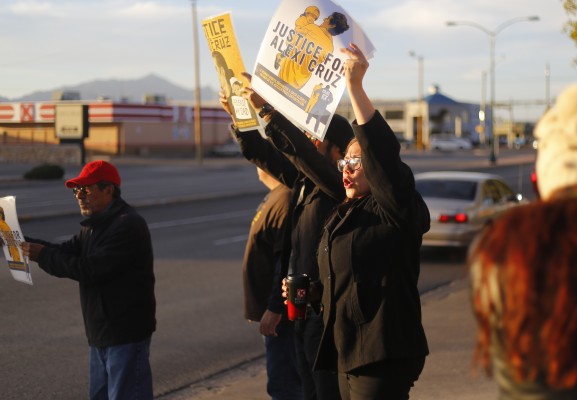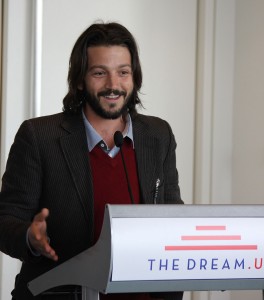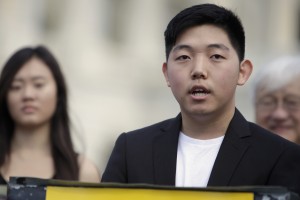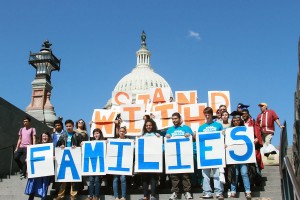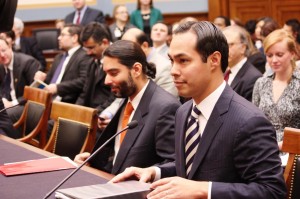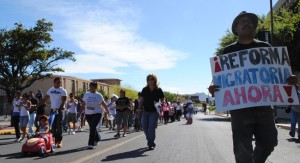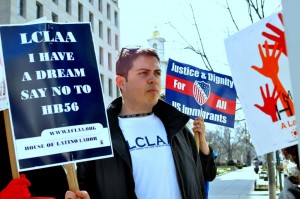Immigrant rights advocates bring protest, Aztec dance, prayer to free detainee in El Paso
|
El Paso – Alexi Cruz may not have realized he had friends in this border community until he was on the verge of being deported. Cruz, 24, an undocumented immigrant from Mexico who has lived in the U.S. since he was 14 years old, was detained in early November by Immigration and Customs Enforcement (ICE) after his car broke down on the way to Arizona. He was on his way from his home in San Antonio to see his mother in Arizona because authorities had apprehended his sister. His wife, Anayanse Garza, said that Cruz sought help after his car broke down in New Mexico near the Arizona border and was questioned by law enforcement officers about his residential status. The Border Patrol was called to pick him up.
